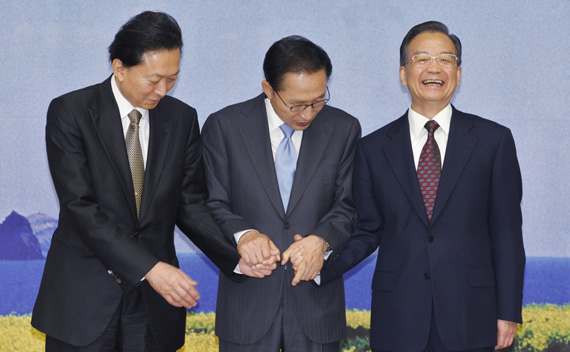Truly New Thinking on North Korea
More on:

Are three of the world’s wealthiest nations truly without recourse? In the wake of North Korea’s sinking of a South Korean warship and the death of forty-six South Korean sailors on board, Japan, the United States and South Korea all agree that tough talk needs to be followed by tough action. Thus far, tough action appears to boil down to taking North Korea before the United Nations Security Council and strengthening South Korea’s naval capabilities.
The reality is that everyone is waiting around for China, which of course, is the only player in the game with real leverage over its truculent neighbor. We can debate whether China has any interest in using its energy, economic, and/or food aid to help North Korea understand what happens to playground bullies (in the end, all the other kids bring them down one way or another). All indications thus far are that China is committed to its usual strategy: do nothing and hope the problem will die down after a while. Witness Chinese Premier Wen Jiabao’s most recent statement during his visit to Japan this past weekend: “Most urgent is to dispel the impact of the Cheonan incident, gradually ease tension and especially avoid a clash…we must put all our efforts without fail to boost peace and stability in Northeast Asia. Without this, we cannot talk about development, and the achievements we have made with difficulty will evaporate.” Of course, I find myself wondering what achievements he is talking about.
Putting aside Premier Wen’s rather flaccid response, my colleagues who specialize on Korea and conflict prevention are working overtime to sketch out a path forward. Scott Snyder has all the smart, strategically sound analysis and answers in his blog postings. But I wanted to share as well a piece written by Paul Stares, director of our Center for Preventive Action. His piece, published in the Los Angeles Times, offers something entirely different. With Invictus fresh in my mind, his ideas seem especially intriguing, perhaps even compelling. (The movie is not exactly on point, but you’ll see the relevance.) Take a look and see what you think.
More on:
 Online Store
Online Store